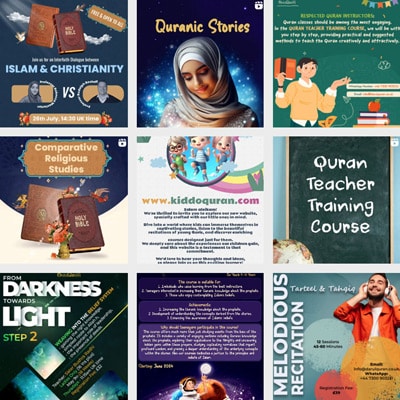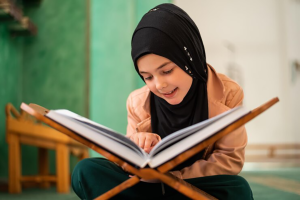How happy is he who sincerely devotes exclusively to Allah his entire life, including his actions, knowledge, love, hatred, receiving, relinquishing, speech, silence, and his words and deeds.
Ali Ibn Abu Talib (a.s.)
Table of Contents
ToggleThe Holy Quran as the central religious text of Islam provides guidance and insights into various aspects of human life including family associations. In this essay we will explore the perspective of tafsir (interpretation) of the Holy Quran on the concept of family association.
By examining relevant verses and interpretations we aim to gain a deeper understanding of the significance and principles underlying family relationships in Islam.

The family unit is the cornerstone of society, and its importance is emphasized in various religious texts and traditions. In the Islamic faith, the Holy Quran serves as the ultimate guide for personal conduct, including the relationships and responsibilities within the family.
The Grand Quran provides a comprehensive framework for family association, outlining the roles, responsibilities, and ethical considerations that govern familial relationships. This essay will explore the historical context, key figures, impact, and influential individuals who have contributed to the field of family association from the perspective of the Noble Quran.
Historical Context
In order to understand the family association from the perspective of the Holy Quran, it is essential to understand the historical context in which the Sacred Quran was revealed.
The Holy Quran was revealed to the Prophet Muhammad (S) over a period of approximately 23 years, beginning in 610 CE. The society at that time was predominantly tribal, with strong kinship ties and a patriarchal structure.
Family relations and dynamics played a central role in the daily lives of the early Muslims, and the Glorious Quran sought to provide guidance on how to navigate these relationships in a way that was just and equitable.
The Noble Quran also emerged in a time of social upheaval and transformation, as the early Muslim community faced persecution and challenges in establishing a new way of life based on the teachings of Islam.
The Quranic verses addressing family association were revealed in response to specific events and situations that arose within the community, providing timeless wisdom that continues to guide Muslims in their familial relationships to this day.
Key Figures
The Quranic perspective on family association is exemplified through the lives of several key figures, including the Prophet Muhammad and his family members. The Prophet Muhammad, as the final messenger of Islam, served as a living example of the Quranic teachings, and his interactions with his family members and companions exemplified the ideal conduct prescribed by the Holy Quran.
The family of the Prophet, including his wives, children, and extended relatives, also played a significant role in demonstrating the Quranic principles of family association. Their relationships and interactions, as recorded in the Islamic tradition, provide valuable insight into the practical application of the Quranic teachings within the context of the family unit.
Impact
The impact of the Quranic perspective on family association cannot be overstated, as it has had a profound influence on the lives of Muslims throughout history and across diverse cultural and geographical contexts. The Quranic teachings on family association have served as a source of guidance, comfort, and inspiration for individuals and communities, shaping the way in which familial relationships are understood and navigated within the Islamic tradition.
The Sacred Quran emphasizes the importance of maintaining strong familial ties, showing kindness and respect towards parents, spouses, children, and other relatives, and fulfilling the rights and obligations that arise within the family unit. These teachings have had a lasting impact on the way in which Muslims understand and practice family association, fostering a sense of compassion, empathy, and mutual support within the family.
Influential Individuals
Several influential individuals have contributed to the field of family association from the perspective of the Holy Quran, offering valuable insights and interpretations that have enriched the understanding of Quranic teachings on familial relationships.
One such figure is Imam al-Ghazali, a renowned Islamic scholar and philosopher whose works on ethics, spirituality, and family dynamics have had a lasting impact on Muslim thought.
Imam al-Ghazali’s writings addressed the importance of family association and the ethical considerations that govern familial relationships, drawing upon Quranic principles to provide practical guidance for individuals seeking to uphold the values of justice, compassion, and mutual respect within the family unit.
His contributions continue to be studied and revered by Muslims seeking to deepen their understanding of the Quranic perspective on family association.
Another influential individual is Fatima Mernissi, a Moroccan sociologist and feminist scholar who has written extensively on the intersection of Islam, gender, and family dynamics.
Mernissi’s work has shed light on the various interpretations of Quranic verses related to family association, highlighting the diverse perspectives and lived experiences of Muslim women within the family unit.
By engaging with the Quranic text and the rich tradition of Islamic scholarship, Mernissi has offered critical insights into the ways in which familial relationships are understood and practiced within the Islamic tradition, challenging conventional assumptions and advocating for a more equitable and just approach to family association.
Her contributions have sparked important conversations within Muslim communities and beyond, prompting a reexamination of traditional interpretations and the potential for positive change within familial relationships.
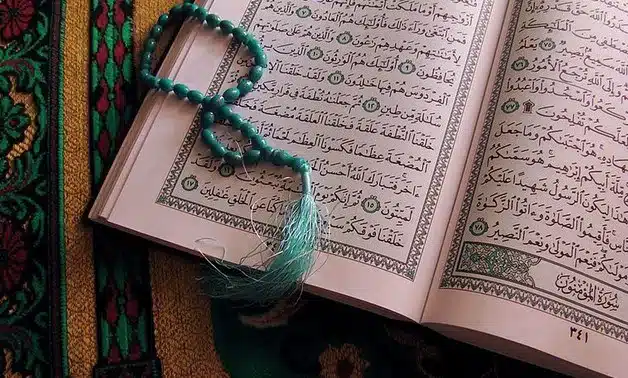
Perspectives and Analysis
The Quranic perspective on family association encompasses a range of themes and considerations that have been the subject of scholarly inquiry and interpretation.
From the duties and responsibilities of parents towards their children, to the rights and obligations of spouses towards each other, the Grand Quran provides a comprehensive framework for understanding the dynamics of family association in Islam.
One key aspect of the Quranic perspective on family association is the emphasis on maintaining strong familial ties and showing kindness and compassion towards one’s relatives
Quranic verses such as “Worship Allah and associate nothing with Him, and to parents do good, and to relatives, orphans, the needy, the near neighbor, the neighbor farther away, the companion at your side” (4:36) highlight the importance of treating family members with empathy and consideration, regardless of their social or economic status.
This emphasis on social justice and care for the vulnerable within the family aligns with broader Islamic teachings on compassion and mutual support, reflecting the ethical principles that underpin family association within the Islamic tradition.
Furthermore, the Quranic perspective on family association also addresses the roles and responsibilities of spouses towards each other, emphasizing the importance of mutual respect, support, and kindness within the marital relationship.
Quranic verses such as “And among His Signs is this, that He created for you mates from among yourselves, that you may dwell in tranquility with them, and He has put love and mercy between your hearts” (30:21) underscore the Noble Quran’s recognition of the marital relationship as a source of comfort, companionship, and spiritual fulfillment, in which both partners are called to demonstrate love, mercy, and understanding towards each other.
While the Quranic perspective on family association offers valuable insights and ethical guidance, it is important to acknowledge that interpretations of Quranic verses related to the family unit have varied across different historical periods, cultural contexts, and scholarly traditions.
This diversity of perspectives has resulted in a rich tapestry of interpretations and methodologies, reflecting the dynamic nature of Quranic exegesis within the Islamic tradition.
Moreover, the Quranic perspective on family association also raises important questions and challenges related to issues such as gender dynamics, parental authority, and the rights of children within the family unit.
These questions have been the subject of ongoing scholarly debate and reflection, prompting Muslims to critically engage with the Quranic text and its implications for contemporary familiar relationships.
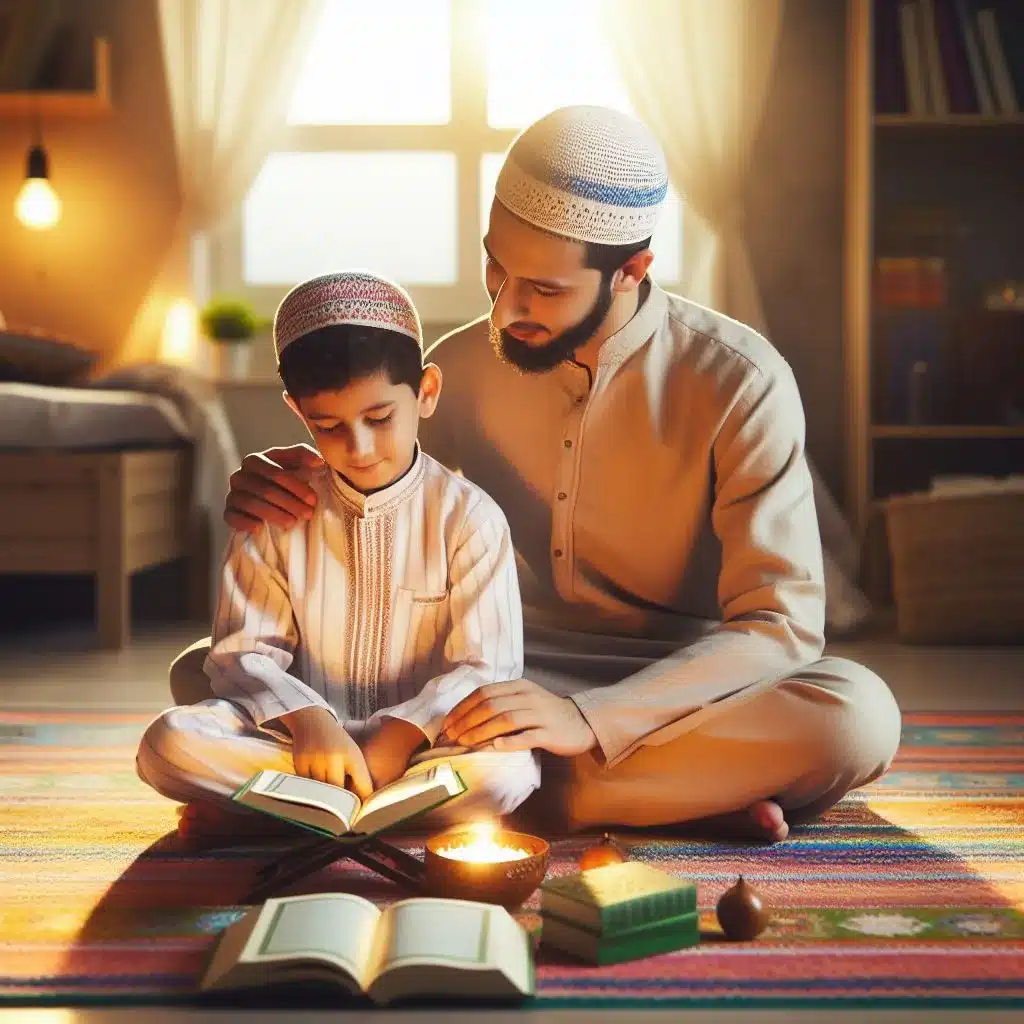
Positive and Negative Aspects
The Quranic perspective on family association is characterized by a range of positive aspects that have had a profound impact on Muslim communities and individuals.
The emphasis on maintaining strong familial ties, showing kindness and compassion towards relatives, and upholding the rights and obligations that arise within the family unit has fostered a culture of mutual support, empathy, and social justice within the Islamic tradition.
These teachings continue to guide Muslims in navigating the complexities of familial relationships, serving as a source of ethical guidance and inspiration.
Additionally, the Quranic perspective on family association has also contributed to the preservation of important social values, such as respect for parents, the sanctity of the marital relationship, and the care for vulnerable members of the family.
These values serve as foundational principles that underpin the stability and well-being of the family unit, promoting a sense of cohesion, understanding, and harmony within the household.
However, it is important to acknowledge that the Quranic perspective on family association has also been subject to varied interpretations and applications, resulting in differing perspectives and approaches across different Muslim communities and cultural contexts.
While the Quranic text provides a comprehensive framework for understanding familial relationships, the complexities of human life and societal changes have given rise to differing interpretations and practices related to family association within the Islamic tradition.
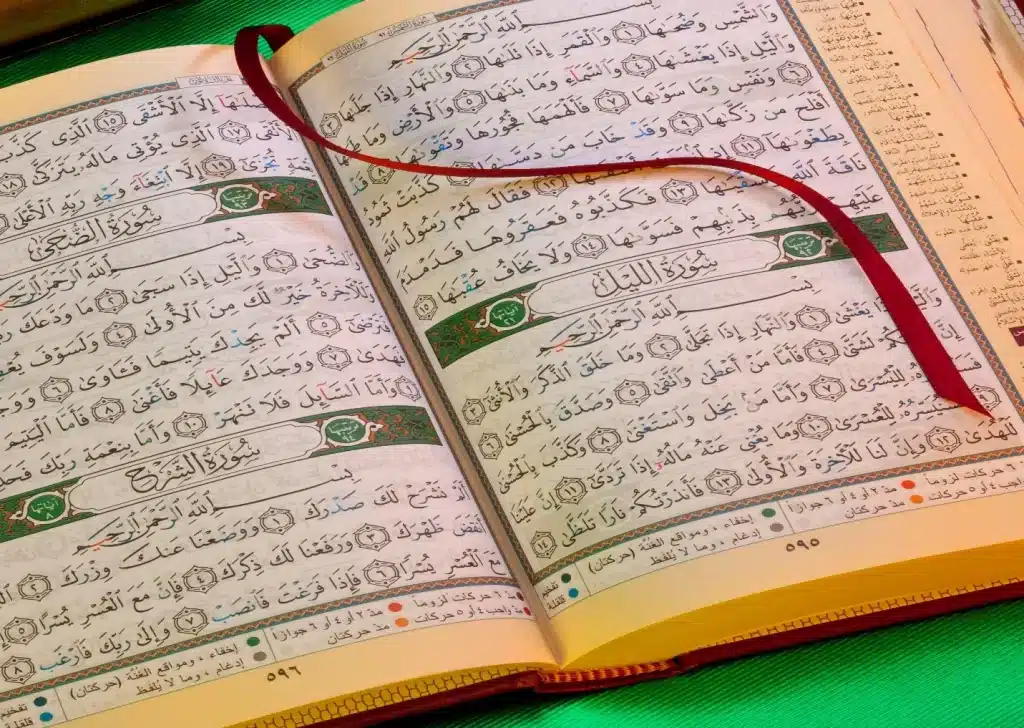
Future Developments
Looking ahead, the Quranic perspective on family association will continue to inspire and inform Muslims in their understanding and practice of familial relationships, serving as a timeless source of ethical guidance and inspiration.
As Muslim communities navigate the complexities of modern life, technological advancements, and evolving social norms, the Quranic teachings on family association will provide a source of stability, wisdom, and ethical principles that can guide individuals and communities in upholding the values of compassion, justice, and mutual support within the family unit.
It is also important to recognize the potential for continued scholarship and dialogue around the Quranic perspective on family association, as scholars, activists, and community leaders engage with pressing issues related to gender dynamics, parental authority, and the rights and responsibilities of family members within the Islamic tradition.
These conversations will be crucial in addressing contemporary challenges and promoting a deeper understanding of the ethical considerations that govern familial relationships, ensuring that the Quranic perspective on family association remains relevant and responsive to the needs of Muslim communities in the 21st century.
In conclusion, the Quranic perspective on family association offers a comprehensive framework for understanding and navigating familial relationships, underscored by key principles such as compassion, justice, and mutual support.
The historical context, key figures, impact, and influential individuals who have contributed to the field of family association from the perspective of the Holy Quran have shaped the way in which Muslims understand and practice familial relationships, while also prompting ongoing dialogue and scholarship around the challenges and opportunities related to contemporary family dynamics within the Islamic tradition.
As Muslim communities continue to grapple with the complexities of modern life, the Quranic perspective on family association will serve as a source of timeless wisdom and ethical guidance, informing the way in which familial relationships are understood and navigated within the Islamic tradition.





